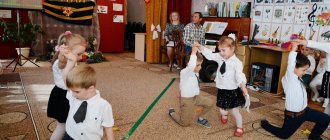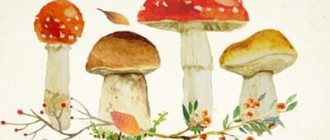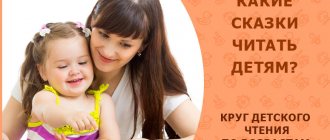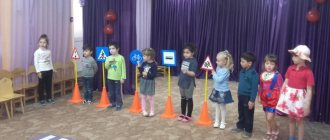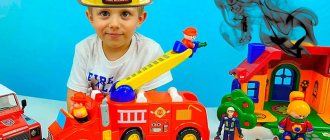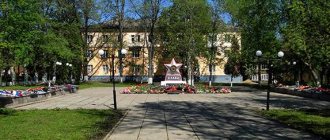How to tell children about war? List of books about war for children of different ages
Books help us preserve the memory of the war and its heroes. It is necessary to introduce children to such works from early school age. Before you start reading books about the war, it is worth talking with your child about history, presenting the main facts in an accessible form, telling them that soldiers defended their homes and their relatives from cruel invaders, while showing courage and heroism. You can also talk about how difficult life was for the women and children whose husbands, brothers and fathers went to the front, but they persevered through all the trials.
In Svetlana Alexievich’s famous book “War Doesn’t Have a Woman’s Face” there is a very important and deep thought: “If you don’t forget the war, a lot of hatred appears. And if a war is forgotten, a new one begins.” This year our country will celebrate the 70th anniversary of Victory in the Great Patriotic War. This tragedy claimed millions of human lives, destroyed cities and entire countries, and broke countless destinies. This is the price that humanity had to pay to get rid of the horrors of fascism. Soviet soldiers defended peace and won freedom for their country, for you and me. This should never be forgotten, no matter how much time passes.
For preschoolers and primary schoolchildren, poems about war :
- Barto A. In the days of war
- Berestov V. Man
- Karprov I. Boys
- Mikhalkov S. Children's shoe, Ten-year-old man
- Marshak S. “Not” and “neither” and many others
For preschoolers and primary schoolchildren, poems about war :
- Barto A. In the days of war
- Berestov V. Man
- Karprov I. Boys
- Mikhalkov S. Children's shoe, Ten-year-old man
- Marshak S. “Not” and “neither” and many others
List of books about war for preschool and primary school age
- Voronkova L. Girl from the city (A story about an orphan girl who found herself in a foreign village during the war and found a new family and home.)
- Kassil L. Street of the Youngest Son (A story dedicated to the tragic fate of Volodya Dubinin, a young partisan - hero of the Great Patriotic War.)
- Kataev V. Son of the Regiment (The story of the orphan boy Vanya Solntsev, who ended up in a military unit with intelligence officers and became the son of the regiment.)
- Oseeva V. A. Vasek Trubachev and his comrades (A work about the fate of the boy Vasya Trubachev and his friends, whose peaceful childhood was cut short by the war.)
- Simonov K. The artilleryman's son (The ballad about Major Deev and Lenka, the son of his friend, based on real events.)
- Yakovlev Yu. Girls from Vasilievsky Island (A poignant story about the girl Tanya Savicheva, who died along with her entire family from starvation in besieged Leningrad, written based on her diary.)
And:
- Alekseev S. Stories about the Great Patriotic War
- Artyukhova N. Svetlana
- Baruzdin S. A soldier walked down the street
- Voronkova L. Girl from the city
- Gaidar A. Timur's Oath, The Tale of the Military Secret, about Malchish-Kibalchish and his firm word
- Golyavkin V. Drawing on asphalt
- Dragunsky V. Arbuzny Lane
- Kassil L. My dear boys, Flammable cargo, Your defenders
- Markusha A. I am a soldier, and you are a soldier
- Paustovsky K. The adventures of the rhinoceros beetle
- Sokolovsky A. Valery Volkov
- Suvorina E. Vitya Korobkov
- Turichin I. Extreme case
- Yakovlev Yu. How Seryozha went to war
Middle schoolchildren will enjoy learning about children, their peers, during the Great Patriotic War, their lives, deeds and exploits.
List of books about war for students in grades 5–7
- Bogomolov V. Ivan (Tragic and true story about a brave boy scout.)
- Kozlov V. Vitka from Chapaevskaya Street (The book tells about the fate of teenagers during the war.)
- Korolkov Yu. Pioneers-heroes. Lenya Golikov (A story about a young pioneer from the Novgorod region Lena Golikov, his fate and feat, based on real events.)
- Rudny V. Children of Captain Granin (The story of the young defenders of the Gulf of Finland, who were able not only not to let the enemy pass, but also took fire on themselves at the most decisive moment.)
- Sobolev A. Quiet Fast (The story of the courage and heroism of yesterday's schoolchildren during the Great Patriotic War.)
And:
- Alekseev S. Stories about war
- Balter B. Goodbye, boys!
- Bogomolov V. Zosya
- Ilyina E. Fourth height
- Likhanov A. The last cold weather
- Mityaev A. Letter from the front
List of books about war for students in grades 8–9
- Adamovich A. Siege book (Documentary chronicle, which is based on the testimonies of Leningraders who survived the siege.)
- Aitmatov Ch. Early Cranes (A story about the destinies of teenagers during the Great Patriotic War, their lives in a distant Kyrgyz village, the trials and joys that befell them.)
- Baklanov G. Forever - nineteen years old (The story of the young lieutenants of the Great Patriotic War, their tragically short front-line journey.)
- Vasiliev B. And the dawns here are quiet... (A story about the tragic fates of five girls and their commander, performing a feat during the war.)
- Polevoy B. The Tale of a Real Man (The Tale of the Soviet pilot Meresyev, who was shot down in battle and was seriously wounded, but again, in spite of everything, returned to combat formation.)
- Tvardovsky A. Vasily Terkin (A deeply truthful and humorous poem in which the immortal image of a Soviet soldier is created.)
- Sholokhov M. The Fate of a Man (A story about the tragic fate of a common man, distorted by war, and strength of character, courage and compassion.)
High school students are already quite ready to learn about the most tragic pages of the Great Patriotic War. Reading such books can be combined with watching war films, both Soviet and modern.
List of books about war for students in grades 10–11
- Adamovich A. Punishers (The story of the events associated with the destruction of seven peaceful villages in occupied Belarus by the battalion of Hitler’s punisher Dirlewanger.)
- Bogomolov V. Moment of truth: In August forty-four (A fascinating novel about the work of counterintelligence officers during the Great Patriotic War, based on real events.)
- Vorobyov K. Killed near Moscow (The story, which became the first of the “lieutenant’s prose” genre, tells about the brutal battles near Moscow in the winter of 1941 and the fate of their participants.)
- Nekrasov V. In the trenches of Stalingrad (The story tells about the heroic defense of Stalingrad in 1942–1943.)
- Fadeev A. Young Guard (Novel about the Krasnodon underground organization "Young Guard", which operated in the territory occupied by the fascists, many of whose members died heroically in fascist dungeons.)
- Sholokhov M. They Fought for the Motherland (A novel about one of the most tragic moments of the war - the retreat of our troops to the Don in the summer of 1942.)
And:
- Bondarev Yu. Battalions ask for fire
- Medvedev D. Strong in spirit
- Smirnov S. Brest Fortress
In conclusion, I would like to note that reading books about war is not entertainment, it is serious work, intellectual and spiritual, in many ways complex and difficult, especially for children. However, it is impossible to do without this work, because, according to the words of Svetlana Alexievich, whom we have already mentioned, “human life is not endless, only memory can prolong it, which alone defeats time.”
Why tell children about war?
One of the important stages in the development of a child’s personality is his comprehensive development and knowledge of the history of his country is simply mandatory. Preschool children are very inquisitive. But not all topics may be of interest to them, but only those that have practical significance. Of course, a teacher or teacher must be able to present the material correctly in order to interest even the most unmotivated children. Boys and girls perceive stories about the war somewhat differently: boys use the example of heroes to form a model of masculinity and courage, girls take care of loved ones and victims. Stories about the exploits and valor of the Soviet people contribute to the formation in children of a sense of pride in their people, country, the development of patriotism, love for the Motherland, and the desire to be like the heroes who defended our country.
Conducting thematic conversations and events in kindergartens is an important component of the patriotic education of preschoolers, the formation of love for the Fatherland, which helps to feel the roots of one’s family. That is why, the sooner a child begins to feel his involvement in the Motherland, in his native land, the sooner he will develop a sense of responsibility for its future, the future of his country, his family.
Parents should work closely with kindergarten teachers so that, with an integrated approach, they not only expand the child’s knowledge about the war of 1941-1945, but also form in him a correct and clear civic position, cultivate a respectful attitude towards the elderly and veterans, monuments and heroes of the Second World War.
Pioneer heroes
Preschool children will be interested in learning about the heroic children who also fought the enemy during the war. They, without fear of reprisals from the Nazis, helped the Soviet army and the country win. Before the war, these were ordinary boys and girls; by 1941, many were barely 10 years old. During times of difficult trials, they accomplished a real feat, defending their people and harboring hatred for the fascists. Many of them died while carrying out their mission, helping the partisans, the army, and the Motherland.
Military professions
When telling preschoolers about the war, military professions should also be mentioned. Children must understand that in addition to teachers, doctors, sellers and others, there is a category of people who develop tactics and strategies, military equipment and weapons. In peacetime, representatives of military professions train recruits and replenish the command staff, develop military equipment and missions, and during war they become commanders: generals, marshals and others.
Military professions include those of pilots, sailors, doctors, nurses, signalmen and others. The control of military equipment was also carried out by well-trained and prepared people. Those who remained in the rear also helped the army. Women, children and old people worked in the fields, factories, factories, grew food, sewed uniforms, prepared spare parts for equipment, produced tanks, airplanes and much more. When telling preschoolers about the Great Patriotic War, it is worth mentioning what a difficult and difficult time it was even for those who remained in the rear, not to mention those. Who fought on the front line. How people starved, hid in bomb shelters from bombings, how the Nazis captured villages and abused prisoners, how they blew up houses.
Why did the war start
Explaining to preschoolers the causes of the war of 1941-1945 is of great concern to both parents and educators. The child must understand that the causes of wars lie in the desire to seize someone else’s prosperous territory or in a quarrel between the leaders of different countries. But the reason for the start of the Great Patriotic War was completely different.
The ruler of Germany, Hitler, decided to kill people only because they had a different nationality. Russians, Poles, Jews, French and other nations had to either accept and submit to the fascist regime of Germany, or die. The child needs to be explained that in Germany itself there were people of different nationalities, against whom cruel repressions were applied first. Many countries that were unable to resist Hitler for whatever reason surrendered. Germany attacked our country suddenly, early in the morning, when all the people were sleeping peacefully. But the Russians refused to submit to the Nazis, entered into an unequal battle with the Germans, and, thanks to courage and determination, defeated the enemy. Russians defended their Land, their Motherland, children, wives, parents, their Fatherland for almost 4 years, which is why the war of 1941-1945 was called the Great Patriotic War.

